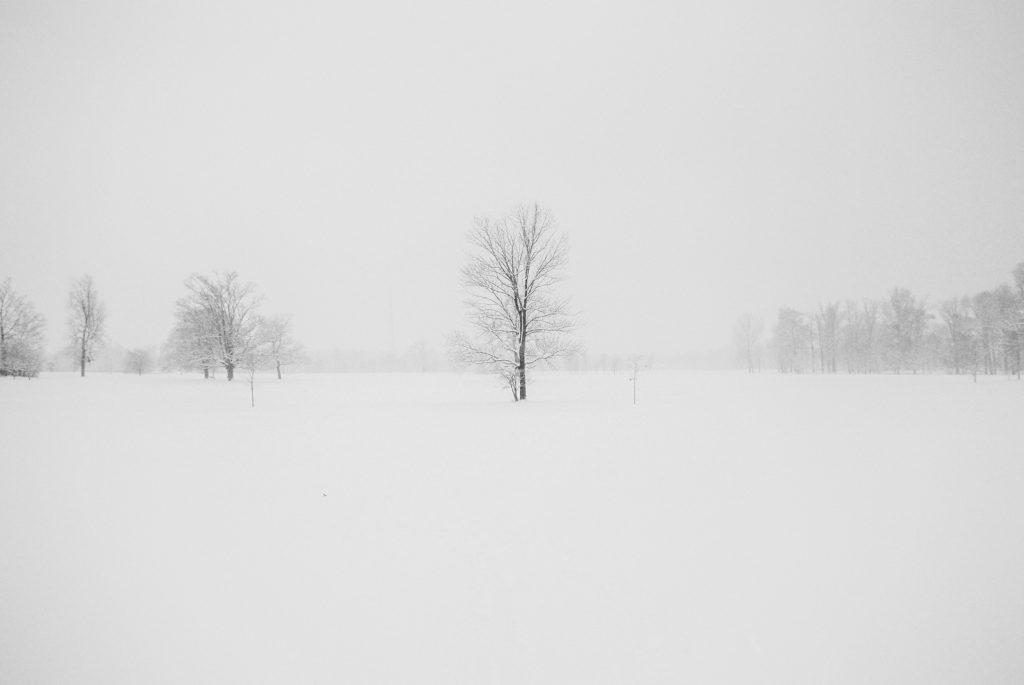Ice Storm
Robert Hayden (1913-1980)
Unable to sleep, or pray, I stand
by the window looking out
at moonstruck trees a December storm
has bowed with ice.
Maple and mountain ash bend
under its glassy weight,
their cracked branches falling upon
the frozen snow.
The trees themselves, as in winters past,
will survive their burdening,
broken thrive. And am I less to You,
my God, than they?
(1966)
***
Job 38:22-30 (NIV)
Have you entered the storehouses of the snow
or seen the storehouses of the hail,
which I reserve for times of trouble,
for days of war and battle?
What is the way to the place where the lightning is dispersed,
or the place where the east winds are scattered over the earth?
Who cuts a channel for the torrents of rain,
and a path for the thunderstorm,
to water a land where no one lives,
an uninhabited desert,
to satisfy a desolate wasteland
and make it sprout with grass?
Does the rain have a father?
Who fathers the drops of dew?
From whose womb comes the ice?
Who gives birth to the frost from the heavens
when the waters become hard as stone,
when the surface of the deep is frozen?
***

***
Robert Hayden was an American poet, essayist, and educator who served as Consultant in Poetry to the Library of Congress from 1976 to 1978, a role known today as Poet Laureate of the United States. He was the first African-American writer to hold the office. Hayden’s idea of poetry has always been of it as an artistic frame rather than a polemical demonstration, addressing qualities shared by mankind such as social justice. And yet, this extended to how he perceived himself, preferring to identify as an American rather than Black poet, inciting controversy for supposedly abandoning his racial heritage to conform to the standards of a white literary establishment. Nevertheless, Hayden is known for the exactness of his language in his craft, as well as his command of poetic structures and techniques. This is evident in his poem ‘Ice Storm’.
The poem’s language is sparse and precise, evocative and simple. It begins, ‘Unable to sleep, or pray, I stand / by the window looking out’. That which he sees forms the visual anchor of the poem: the word ‘moonstruck’ vividly draws to mind the tree bathed in moonlight, ‘bowed with ice’ yields an image of a tree bent by the pressures of winter. The ‘Maple and mountain ash bend /under its glassy weight’ until ‘cracked branches’ fall. This vision of unrelenting turmoil, that which bends a resilient organism to the point of breaking, made me think of the climactic conclusion of Job where God reveals himself.
In response to the bitterness of Job’s protestations, God declares in chapter 38, ‘Have you entered the storehouses of snow / or seen the storehouses of the hail / which I reserve for times of trouble’? God is the originator of all that is fearsome and moving about the extremity of winter, He who ‘gives birth to the frost from the heavens’. This grand sweep of creation that God presents, extending beyond the bitterness of cold to deserts, wasteland, and grass, is meant to humble Job and remind him of God’s divine sovereignty.
And in Hayden’s poem, confronted by the relentlessness of the storm, he too is reminded of a kind of divinity. Hayden subscribed to the Baha’i faith, so I do not want to conflate his conception of God with ours, but the final line nevertheless bears some resonance for us. Seeing the trees that will ‘survive their burdening’, the speaker asks, ‘am I less to You / my God, than they?’ The trees are symbols of persistence and renewal, and though they bend and they break, they survive. Hayden’s poetic vision reminds of similar ends to suffering, of bearing the presence of God in the midst of difficulty, while also remembering that we are not any less than the rest of what God has created. Confronted with the tremendous force of nature, the speaker is reminded of a kind of divine faithfulness and provision, one that is not too distant from Job’s reminder of divine sovereignty.
What reminds you of God’s power? What reminds you that He cares for you?
***
© 1966 Robert Hayden




